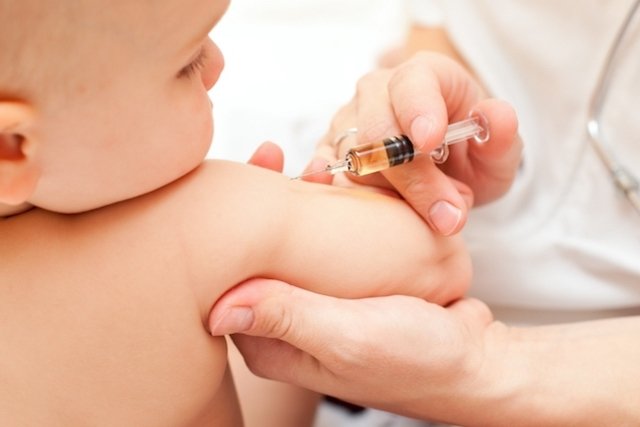BCG is a vaccine indicated against tuberculosis and is normally administered shortly after birth, being included in the child’s basic vaccination schedule. This vaccine does not prevent infection or the development of the disease, but it prevents it from progressing and, in most cases, prevents the most serious forms of the disease, such as miliary tuberculosis and tuberculous meningitis. Find out more about tuberculosis.
The BCG vaccine is made up of bacteria from the strain Mycobacterium bovis (Bacillus Calmette-Guérin), which have an attenuated viral load and therefore help to safely stimulate the body, leading to the production of antibodies against the disease, which will be activated if the bacteria enters the body.
The vaccine is made available free of charge by the Ministry of Health and is normally administered in the maternity ward or health center shortly after birth.

When to take
In Brazil, the BCG vaccine is recommended for newborns weighing 2kg or more and, therefore, is usually administered shortly after birth, while still in the maternity ward.
In Portugal, the BCG vaccine has no longer been mandatory since 2016, however it may be indicated for some babies at high risk of developing the infection, and it is important to have a pediatrician’s recommendation.
How it is administered
The BCG vaccine must be administered directly into the top layer of the skin by a doctor, nurse or trained healthcare professional. Generally, for children under 12 months of age the recommended dose is 0.05 mL, and for children over 12 months it is 0.1 mL.
This vaccine is always administered to the child’s right arm, and the response to the vaccine takes 3 to 6 months to appear, being noticed when a small raised red spot appears on the skin, which evolves into a small wound and, finally, a scar.
What does the BGC vaccine scar mean?
The formation of the scar indicates that there was a reaction by the body to the bacteria injected into the skin, and is considered a sign that the vaccine was able to stimulate the baby’s immunity.
However, the absence of a scar does not necessarily indicate a lack of immunization, and it is not recommended that the vaccine be reapplied if there is no scar, as there is no scientific evidence that it is beneficial.
Care to take after the vaccine
After receiving the vaccine, the child may have an injury at the injection site. For healing to occur correctly, you must avoid covering the injury, keep the area clean, do not apply any type of medication, or apply a bandage.
Possible adverse reactions
Normally, the tuberculosis vaccine does not lead to side effects, other than swelling, redness and tenderness at the injection site, which gradually changes to a small vesicle and then to an ulcer in about 2 to 4 weeks.
Although it is rare, in some cases, swollen lymph nodes, muscle pain and soreness at the injection site may occur. When these side effects appear, it is recommended to go to the pediatrician to have the child evaluated.
Who shouldn’t take
The vaccine is contraindicated for premature babies or those weighing less than 2kg, and it is necessary to wait for the baby to reach 2kg for the vaccine to be administered. Furthermore, people allergic to any component of the formula, with congenital or immunosuppressive diseases, such as generalized infection or AIDS, for example, should not take the vaccine.
How long is the protection?
The duration of protection varies. It is known that it decreases over the years, due to the inability to generate a sufficiently robust and lasting amount of memory cells. Thus, it is known that protection is greater in the first 3 years of life, but there is no evidence that protection is greater than 15 years.
Can the BCG vaccine protect against coronavirus?
According to the WHO, there is no scientific evidence that demonstrates that the BCG vaccine is capable of protecting against the new coronavirus, which causes COVID-19 infection. However, investigations are being carried out to understand whether this vaccine can actually have any effect against the new coronavirus.
Due to a lack of evidence, the WHO recommends the BCG vaccine only for countries where there is an increased risk of contracting tuberculosis.

Sign up for our newsletter and stay up to date with exclusive news
that can transform your routine!
Warning: Undefined array key "title" in /home/storelat/public_html/wp-content/plugins/link-whisper-premium/templates/frontend/related-posts.php on line 12
Warning: Undefined array key "title_tag" in /home/storelat/public_html/wp-content/plugins/link-whisper-premium/templates/frontend/related-posts.php on line 13



